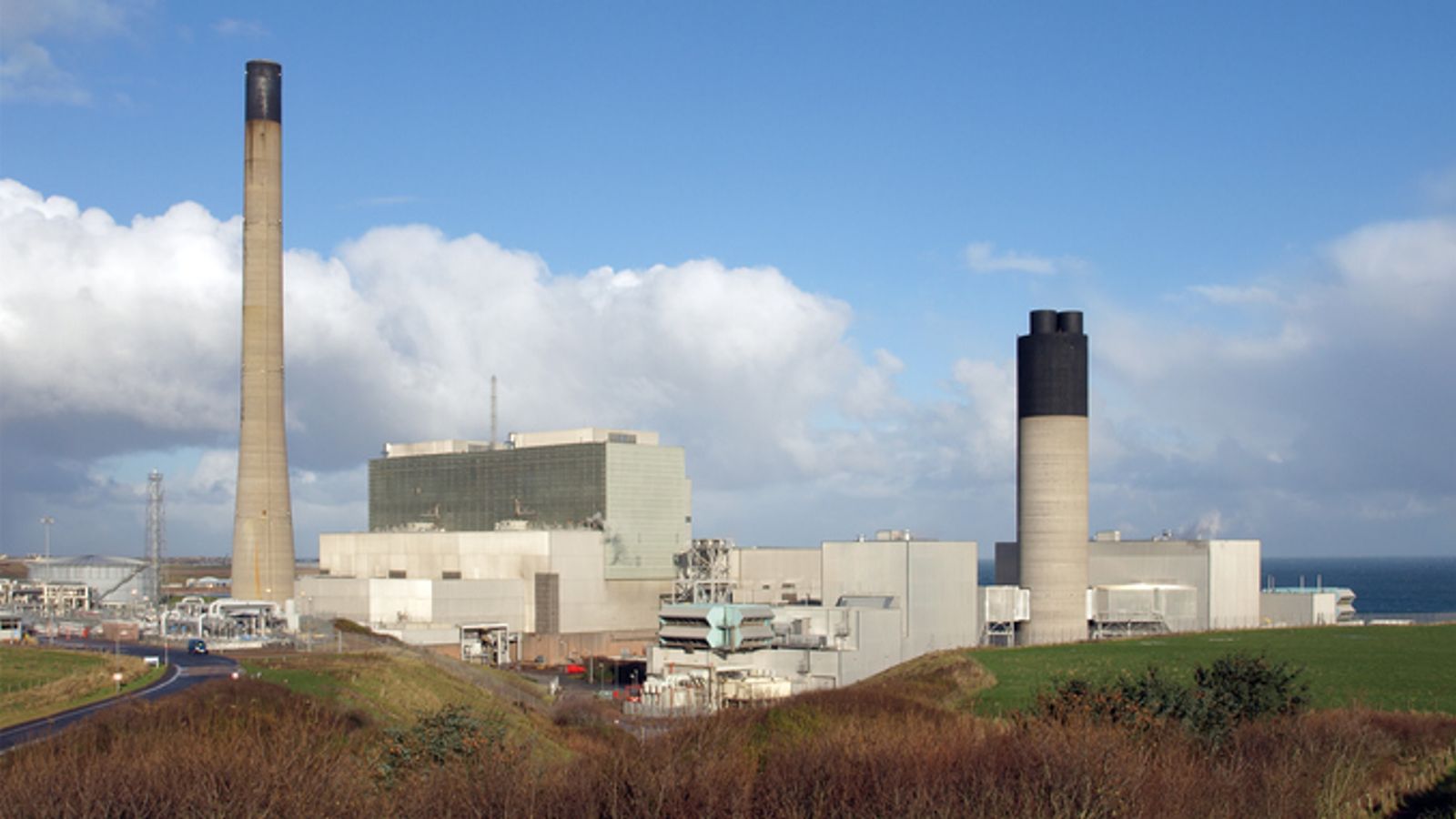The UK needs to build more gas power capacity, the government has said, even while it is also trying to wean the energy system off of fossil fuels to meet climate targets.
It also forged ahead with proposals for regional electricity pricing, with the potential for households and businesses to be charged different amounts in different parts of the country – though other options remain on the table.
Electricity demand is increasing as the UK electrifies things like heating and cars, and the population grows.
Officials have been reviewing how to make sure supply keeps up with demand, is reliable, and reaches the right areas of the country.
Today the Department for Energy Security and Net Zero said it was clear the UK would need new backup gas capacity to provide power that can be fired up on demand, on days when it isn’t windy or sunny enough to get electricity from renewables.
That’s also because some gas plants are due to retire in the coming years.
The decision was long expected, and the energy industry welcomed the reassurance on how to direct its investment.
But some analysts warned extra gas is the wrong solution to the question of how to meet increasing demand and provide flexibility, and said it was a reflection of failure in other areas of energy security policy.
‘We must be realistic’
In a speech today at Chatham House, the Energy Security Secretary Claire Coutinho is expected to say the UK risks “blackouts” without new gas power stations.
“There are no easy solutions in energy, only trade-offs,” she will say.
“And so, as we continue to move towards clean energy, we must be realistic.”
Prime Minister Rishi Sunak said: “I will not gamble with our energy security. I will make the tough decisions so that no matter what scenario we face, we can always power Britain from Britain.”
Labour’s shadow energy secretary, Ed Miliband, said the plans were only necessary because of “fourteen years of failed Conservative energy policy”, including an effective ban on onshore wind, slow progress on energy efficiency and last year’s failed offshore wind auction.
However, he added that if old capacity needs replacing, Labour would be open to some new gas power generation, too.
Mr Miliband said: “Of course we need to replace retiring gas-fired stations as part of a decarbonised power system, which will include carbon capture and hydrogen playing a limited backup role in the system.”
The government argues the move is in line with its climate commitments to cut emissions from fossil fuels because although gas capacity will increase, overall running hours will reduce, as the gas power would not be not firing all the time, but could be scaled up and down as a backup.
‘The government has missed opportunities’
Juliet Phillips, UK energy programme lead at thinktank E3G, said the UK has been a “clean power leader”, given its “continued exponential growth in renewables”.
But the government’s “policy failures” and “missed opportunities” in offshore wind and grid connections left it having to announce new gas power today.
New gas capacity “must come with strict conditions that new plants can be retrofitted with green hydrogen or carbon capture and storage in the future,” she said.
The government wants to boost gas capacity by tweaking capacity market rules, with the costs being covered by billpayers – who would foot the bill for any backup capacity.
It is also considering broadening existing rules for new plants to be able to convert to lower-carbon alternatives, such as by adding carbon capture technology to catch and store emissions.
However, it did not confirm how much new gas capacity was needed.
Kisha Couchman, deputy director at Energy UK, said the power system is undergoing “significant change” as the sources diversify and flexibility becomes more important.
She added: “The challenge is to bring forward changes to support this aim while also providing the certainty essential to bring forward long-term investment – so it’s also right to look at the role that existing mechanisms can play.”
Read more from Sky News:
High-pressure showers can cut water use – study
The homes being swallowed up by the sea
Brown questions Starmer’s ‘inner cabinet’ plan
Need for ‘no regrets’ options
Climate and energy thinktank ECIU said there are cheaper, more climate-friendly forms of backup power that could be used instead, such as using EVs to give power back to the grid and battery storage.
The announcement comes as the government gives an update on its consultation for the Review of Electricity Market Arrangements (REMA).
It has ditched a previous proposal to stop linking electricity prices with gas prices.
It is finessing one proposal to bring in regional pricing of wholesale electricity, which could incentivise industry to build in areas where electricity is cheaper, and attract new power projects where demand is greatest.
However, critics have raised concerns over the fairness of the proposal, and ministers have not yet decided if households would be subject to a “postcode lottery” of different costs in different areas.
Another option for continued regional pricing remains on the table.
Guy Newey, CEO at Energy Systems Catapult, said the only way to green the electricity system “in time and without pushing up bills is to move to a market that reflects local supply and demand”.
“It is an essential step forward to see government proposing stronger locational signals in the wholesale market,” he said.
